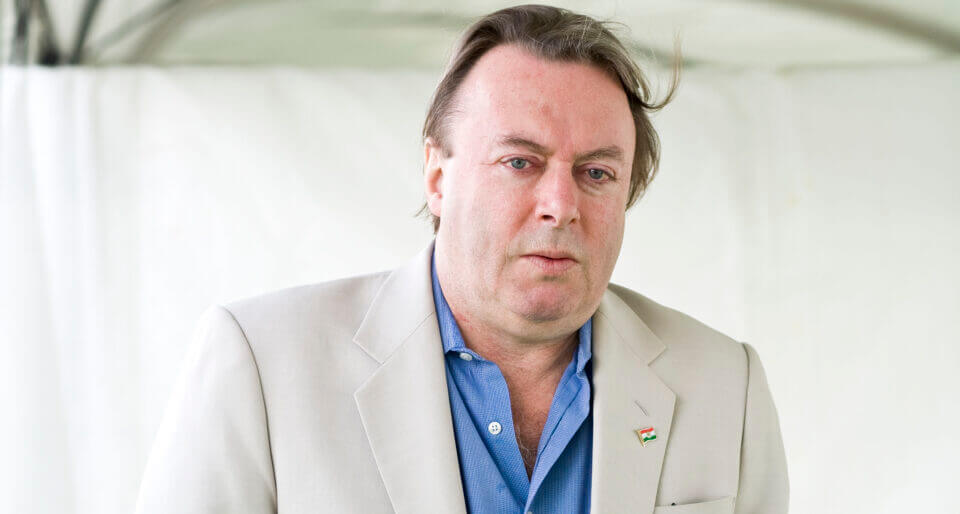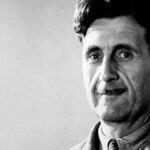
“[Matt] Johnson believes that by adopting [Christopher] Hitchens’s approach—his allergy to party politics, his hatred of racism and nationalism, his emphasis on pluralism and humanism—the contemporary left will not just benefit at the ballot box but will also benefit morally and intellectually.”
A German chess player once remarked that Bobby Fischer, the American grandmaster, was so superb that “even his weaknesses are dangerous.” For polemics, politics, and oratory, the same is true of the late British-American journalist Christopher Hitchens. He was a skilled rhetorician. He regularly combined wit, irony, and a large grasp of history into spontaneous paragraphs. Even when he went awry, it was difficult to pinpoint, for he always had the appearance of being correct. “Nobody ever beat Hitchens in argument,” as Michael J. Totten wrote, “not even when he was wrong.” Hitchens was dangerous, even in his weaknesses.
Hitchens enjoyed argument for its own sake and ridiculed the idea of a unifier. “Politics is division by definition,” he claimed, and “if there was no disagreement there would be no politics.” Hitchens’s posthumous YouTube reputation, however, has garnered very little division. He is praised ad nauseam for “awesome comebacks” and “nuclear” responses. A term was invented—the “Hitchslap”—to describe his one-liners. A video with Hitchens in the thumbnail, wearing a serious face and a cream-colored suit, reads: “My Top 7 Favorite Hitchslaps.” He often debated religious leaders and political personalities. “You give me the awful impression,” he once told Sean Hannity, “of someone who hasn’t read any of the arguments against your position ever.” There are similar videos by the dozen. Although a divider and dissenter, Hitchens has garnered a unified crowd of fans. But Hitchens has another reputation, too.
Today’s political left remembers his later career as a case of horrible transformation. Beginning as a principled Marxist, he degenerated into a warmongering neoconservative, supporting the invasions of Iraq and Afghanistan. Former Labour Member of Parliament George Galloway said Hitchens’s evolution was “the first ever metamorphosis from a butterfly back into a slug.” Richard Seymour, the author of the 2013 book Unhitched: The Trial of Christopher Hitchens, called him a “left-wing defector.” After the Taliban brutally retook Afghanistan in 2021, The Spectator conducted an autopsy on Hitchens’s post-September 11th politics, concluding that he had a “neoconservative mind.” In 2022, Jacobin published an essay on him, calling him a “zealous neoconservative convert.”
Hitchens, then, has two reputations: a verbally dominant YouTube atheist and a beloved Marxist turned right-wing crackpot. Although these reputations do not contradict one another, they generally are not encountered simultaneously. They do, however, mischaracterize him. One is reminded of what George Orwell once wrote about poor renditions of Shakespeare. “If there really is such a thing as turning in one’s grave,” he wrote, “Shakespeare must get a lot of exercise.” At this point, Hitchens must be an Olympian grave turner. Matt Johnson’s new book, How Hitchens Can Save the Left: Rediscovering Fearless Liberalism in an Age of Counter-Enlightenment, finally lets Hitchens rest.
Johnson summons an avalanche of research, insight, and clear prose to detail the political and moral principles that undergirded Hitchens’s ideas. What Hitchens believed about freedom of expression, identity politics, authoritarianism, patriotism, and liberalism, Johnson examines in depth across three hundred pages (four hundred if one counts the notes and index). During his examination, Johnson will either agree with or oppose his subject. It is often the former, for Johnson is dedicated to very similar ideas: He is a free speech fundamentalist of the anti-totalitarian left who advocates for an anti-identitarian, internationalist approach to politics. He does not wish to revive what Hitchens thought as much as how Hitchens thought. Johnson believes that by adopting Hitchens’s approach—his allergy to party politics, his hatred of racism and nationalism, his emphasis on pluralism and humanism—the contemporary left will not just benefit at the ballot box but will also benefit morally and intellectually.
Hitchens on Free Expression
Hitchens’s belief in freedom of expression was central to his thought, and so Johnson covers it first. Although Hitchens condemned any state that suppressed or punished its citizens for speech, his commitment to freedom of expression was not simply a legal one. Hitchens believed that cultural free speech, where fear of public opinion did not dissuade writers from publishing their honest opinions, was equally important. Johnson quotes Orwell on a similar point: “The sinister fact about literary censorship in England is that it is largely voluntary. Unpopular ideas can be silenced, and inconvenient facts kept dark, without the need for any official ban.” Hitchens believed the literary world (and the West in general) failed to embrace cultural free speech, especially in February of 1989.
In September of 1988, novelist Salman Rushdie had published The Satanic Verses, a novel that reimagined the life of the Prophet Muhammed. In response and following months of protests and controversy in parts of the Islamic world, Ayatollah Ruhollah Khomeini, who was then Supreme Leader of Iran, issued a fatwa against Rushdie, as well as his editors and translators. Rather than rallying behind Rushdie, many in the Western media blamed him for causing “offense” to the “Muslim world.” Johnson notes multiple examples. Former President Jimmy Carter, for instance, published an article in The New York Times titled “Rushdie’s Book is an Insult.” A reviewer in The Washington Times wrote that he had “a certain sympathy with the Islamic leaders’ complaints.” Columnists in The Washington Post asserted that people needed to show an “understanding” of the strength of religious feeling.
Hitchens reacted strongly to these weak commitments to freedom of expression. “I have seen important figures in the liberal culture,” he wrote, “employing the excuses of tolerance and pluralism in order to euphemize the intolerant and whitewash the enemies of pluralism.” Hitchens had been a proponent of free expression long before the Rushdie Affair, but Johnson writes that:
“The fatwa was a galvanizing event for Hitchens. It synthesized and exposed many of the deepest problems with what he saw as complacent Western liberalism: its susceptibility to theocratic bullying under the cloak of multiculturalism; its unwillingness to take a firm position even when the two ‘sides’ couldn’t be clearer; and most of all, its touch-and-go commitment to free speech.”
Hitchens had an absolute commitment to the First Amendment and the promotion of cultural free speech. He believed that these principles should not be abandoned in the face of religious violence. Condemning such violence and siding with the victim, in fact, remains a struggle for many liberal figures today.
The position of the novelist Joyce Carol Oates is the opposite of Hitchens’s. As Johnson documents, Oates was among the 242 writers who signed an open letter to PEN America in the spring of 2015. The signatories were protesting PEN’s decision to give Charlie Hebdo the Toni and James C. Goodale Freedom of Expression Courage Award. In January of that year, Islamist terrorists had broken into the satirical newspaper’s office and murdered 12 people while injuring 11 others. Charlie Hebdo had published cartoons of the Prophet Muhammed in 2012, and this was the reason cited for the violence.
The signatories, however, protested that awarding Charlie Hebdo with the Freedom of Expression Courage Award was to “valoriz[e] selectively offensive material.” PEN did not realize that “power and prestige are elements that must be recognized in considering almost any form of discourse, including satire.” Theocratic gunmen had murdered innocent people at their workplace. The crime the victims had committed was publishing a cartoon. But the PEN signatories believed that, no, the victims were actually the ones who wielded power.
In June of 2020, Oates tweeted at The New York Times. The paper had published an op-ed by Arkansas Senator Tom Cotton, who argued for military intervention to prevent riots in the wake of the George Floyd protests. She wrote: “[I]t’s one thing to air diverse opinions. [B]ut when people are actually being killed, maimed & terrorized by lawless law enforcement, such ‘bothsiderism’ begins to seem obscene. [S]urely the NYTimes wouldn’t present both sides of the Holocaust?” In response to Oates’ flimsy commitment to free speech, Johnson wields a similar pen to Hitchens’s:
“It is curious that Cotton’s op-ed made Oates think of fascism and the Holocaust, whereas the murder of journalists and cartoonists by heavily armed anti-Semitic theocrats prompted her to change the subject from the brutal suppression of free speech to the good or bad taste of the cartoons.”
Johnson presents Hitchens’s arguments and principles and then, in turn, provides contemporary examples to demonstrate their continued relevance. Johnson occasionally provides his own opinions on the topic—as seen in his response to Oates—but he is careful not to treat himself as the subject of his own book. His opinions are limited and useful. And his opinions on freedom of expression largely align with Hitchens’s. Both believe free speech is fundamental to liberalism, democracy, and the pursuit of truth. They believe it is the necessary precept for human rights and the prevention of violence. They believe it should be implemented on an international scale. They believe religion should not be afforded special protections. And most importantly, both believe in a robust culture of freedom of expression and the exchange of ideas.
Hitchens on Identity Politics
Although commitment to free speech is Johnson’s and Hitchens’s strongest point of agreement, they have similar positions on identity politics. Both dislike it. Hitchens believed that identity politics was redefining what it meant to be a “radical” or a “revolutionary.” Being a radical no longer implied holding principled stances, merely belonging to a given sexual or racial identity. He writes in his 2010 memoir Hitch-22:
“From now on, it would be enough to be a member of a sex or gender, or epidermal subdivision, or even erotic ‘preference,’ to qualify as a revolutionary. In order to begin a speech or to ask a question from the floor, all that would be necessary by way of preface would be the words: ‘Speaking as a…’ Then could follow any self-loving description. I will have to say this much for the old ‘hard’ Left: we earned our claim to speak and intervene by right of experience and sacrifice and work. It would never have done for any of us to stand up and say that our sex or sexuality or pigmentation or disability were qualifications in themselves. There are many ways of dating the moment when the Left lost or—I would prefer to say—discarded its moral advantage, but this was the first time that I was to see the sellout conducted so cheaply.”
Hitchens deplored identity politics because it emphasized what was different between people and chunked them into immutable groups. Given his commitment to internationalism and universalism, he told his readers in Letters to a Young Contrarian to “have nothing to do with identity politics.” Indeed, the term itself is an odd one. One’s race or sex or sexual orientation is an inbuilt trait and, therefore, bears no relation to one’s individuality, uniqueness, or personhood. One’s identity, in fact, must be separate from such traits because such traits designate a group.
Indeed, emphasizing race, sex, and sexual orientation practices anti-identity politics, for nothing could be further from one’s identity—one’s individuality—than the inbuilt traits characteristic of many people. Knowing that someone is black or gay or trans, for instance, is to know nothing about that person. Johnson highlights this point in particular. He writes that “[Hitchens] thought [the left] should embrace universal Enlightenment concepts like the primacy of the individual and unconstrained rational inquiry—no voice should be silenced or promoted on the basis of some crude characteristic like skin color or gender or sexuality.”
Hitchens’s condemnation of identity politics, however, did not prevent him from wishing to rectify past injustices. As Johnson notes, “[Hitchens] supported reparations for black Americans, took part in protests for racial equality, and once delivered a ‘speech at a street rally against an apartheid era South African cricket team, which led the British police to grab and hold me on a charge of incitement to riot.'” Hitchens believed two things at once. He believed that an emphasis on someone’s race or sex or sexual orientation was unethical and backward, and he also thought that changes were needed in law and norms to correct for historical wrongs. For him, there was no contradiction between these two stances.
Hitchens on War and Peace
Johnson’s book does not deify Hitchens, but it does celebrate him. His research is not restricted to topics on which he agreed with Hitchens. He notes, for instance, Hitchens’s embarrassing predictions and thoughts about the Iraq War. In 2003, he said that the American-led intervention “will be no war” and maintained that it would be “fairly brief.”
Hitchens believed he was supporting a quick, ruthless overthrow of a sadistic, totalitarian regime. Even after it became clear that Iraq possessed no weapons of mass destruction, Hitchens maintained that the only way to be certain Saddam Hussein would never acquire them was to invade. This is certainly a nasty stain on an otherwise great reputation. This stain, however, is not a right-wing, neoconservative one. Hitchens defended the wars in Iraq and Afghanistan—however incorrect he was—from the perspective of the Left. It was possible, in other words, to stand with the Kurdish resistance and wish violently to depose Saddam without capitulating to Fox News and Dennis Prager. Christopher Hitchens agreed with his brother, Peter, when he called the Iraq war a “left-wing” one.
Hitchens was not a neoconservative who abandoned his left-wing principles. He supported universal healthcare, the European Union, and the North Atlantic Treaty Organization. He believed liberal values did not have borders, and he embraced internationalism. He despised invocations of nation, tribe, and faith. He never made vague references to “tradition.” He preferred it when Americans were not chanting “USA! USA!” He had no interest in sports culture. He opposed the war on drugs. He was a self-described “anti-theist.” He was neither culturally nor intellectually conservative. “He seeks, not only the most difficult position,” Martin Amis wrote of Hitchens, “but the most difficult position for Christopher Hitchens.” It is impressive that someone so singular could advocate strongly, uniquely, for a global approach.
Conclusion
Johnson knows when to speak up and correct the historical record and when to quiet down and let Hitchens take over. He convinces the reader that if the Left adopted how Hitchens thought—rather than what Hitchens thought—we would have a stronger, better democracy. The book is well-researched, and the prose is transparent. It is undoubtedly the founding text for future books about Hitchens.
Riley Moore is a student at Royal Holloway, University of London studying English and Philosophy. He is also a freelance writer, having previously contributed at Quillette, Royal Halloway’s The Founder, and other publications.











